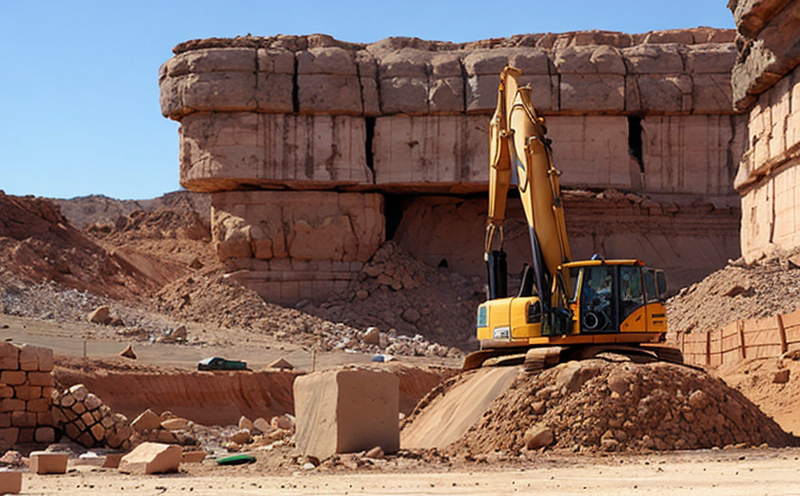ISO 4103 Core Drilling and Sampling of Rock Testing
The ISO 4103 standard provides a comprehensive framework for core drilling and sampling of rock specimens, ensuring accurate and reliable testing results. This service is critical in mining applications where understanding the mechanical properties of rocks can significantly impact the design and safety of underground structures.
At Eurolab, we specialize in executing ISO 4103-compliant tests with precision and accuracy. Our team uses advanced drilling equipment tailored to extract high-quality core samples from various rock types. The process begins with selecting the appropriate drill bit and coring tool based on the expected hardness of the rock type.
Once the sample is extracted, it undergoes rigorous preparation steps before testing can commence. These include cleaning the sample, ensuring no contamination or damage occurs during handling, and verifying that the sample meets the required dimensions specified in ISO 4103. The core samples are then stored under controlled conditions until they are ready for mechanical testing.
The testing itself involves subjecting the rock cores to various forms of stress, including uniaxial compression tests, which provide valuable insights into the strength and deformation behavior of the rock material. Additionally, we can perform other types of testing such as point load strength index (PLSI) or Brazilian disc shear tests if required by your project specifications.
Our laboratory adheres strictly to ISO 4103 guidelines throughout every phase of this service, ensuring that all samples are handled correctly and tested appropriately. By following these stringent protocols, we guarantee accurate data that accurately reflects the true physical properties of your rock specimens.
Industry Applications
- Mining operations: To evaluate ground stability near open pits or underground mines;
- Dam construction projects: Assessing foundation integrity prior to concrete placement;
- Tunnel engineering: Determining suitable support methods for excavations.
These tests play a crucial role in ensuring safety and efficiency within these industries by providing detailed information about the geological conditions encountered during excavation activities. Understanding the rock's behavior under different loading scenarios helps engineers design safer structures while minimizing risks associated with unexpected failures.
Customer Impact and Satisfaction
- Achieving regulatory compliance through adherence to international standards like ISO 4103;
- Reducing project risk by identifying potential issues early in the design phase;
- Enhancing confidence among stakeholders who rely on accurate test results for decision-making processes.





